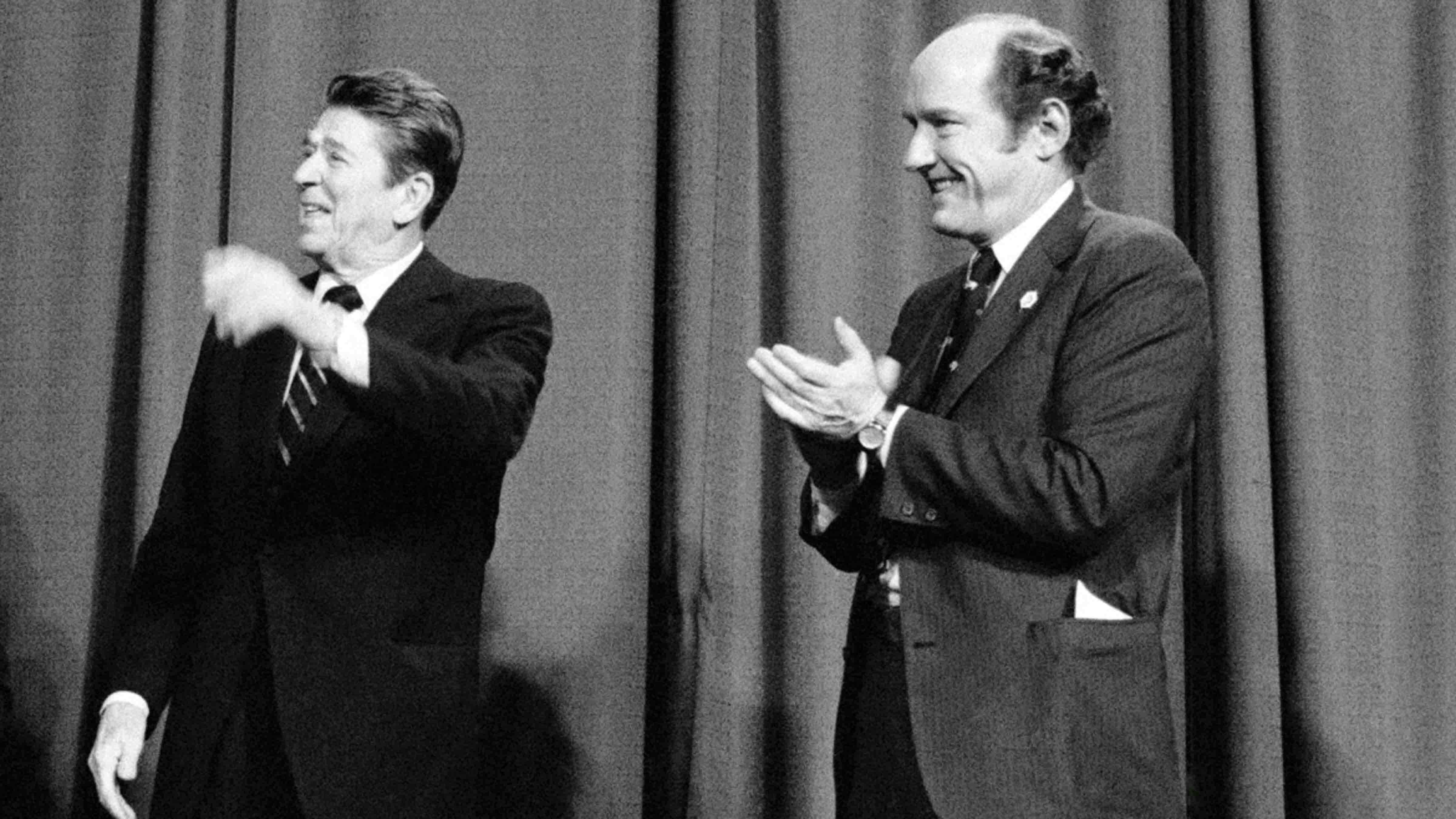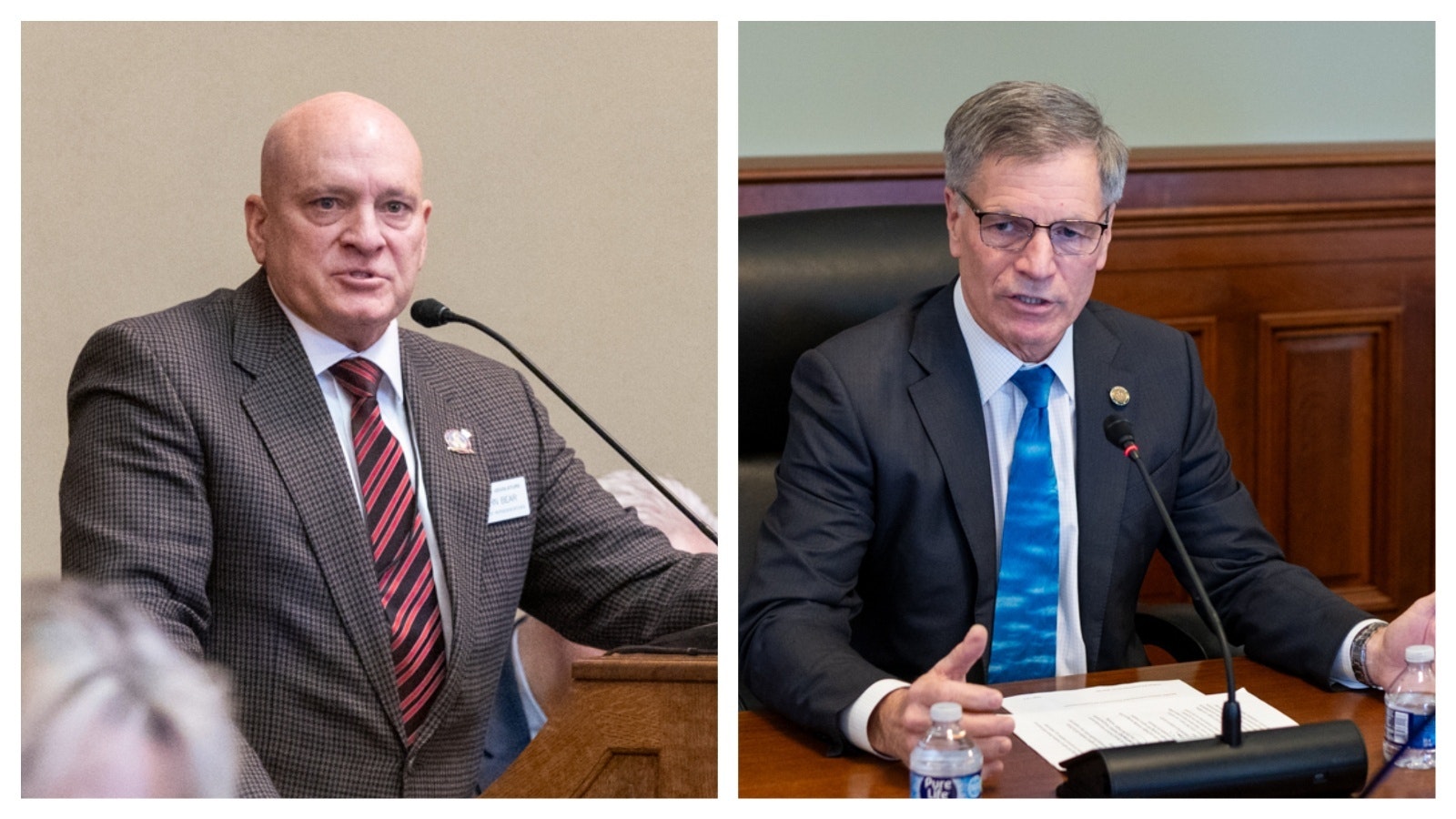An award-winning journalist credited the late President Ronald Reagan with saving Israel last weekend with the missile defense systems the United States built in the 1980s.
Wall Street Journal columnist Daniel Henninger praised the defensive effort in his Wednesday piece titled “Ronald Reagan Just Saved Israel From Iran’s Attack.” He also poked fun at President Joe Biden who, despite beaming over the effort’s success, was a critic of the defense project that led to it.
And that project — nicknamed “Star Wars” — owes its success to a Yale-educated rancher from Wyoming.
Sen. Malcolm Wallop, R-Wyoming, was an early leader of the Strategic Defense Initiative (SDI), a program to build weapons that could intercept and destroy ballistic missiles before they reached their targets.
He introduced the first of several amendments to the Defense Authorization Bill in 1980, which led to a provision of law directing the U.S. secretary of defense to build space laser weapons.
Wallop’s original plan was to build space lasers. As far as the public knows, the program didn’t yield space lasers. It did lay the groundwork for an arsenal of ground-, air- and sea-based missile interceptors, which Israel quickly gained permission to develop alongside the United States.
“By universal acclamation, the hero of last weekend was Israel’s missile-defense systems,” Henninger wrote, referencing Iran’s 300-munition attack on Israel on April 13, which American and Israeli defense systems largely thwarted.
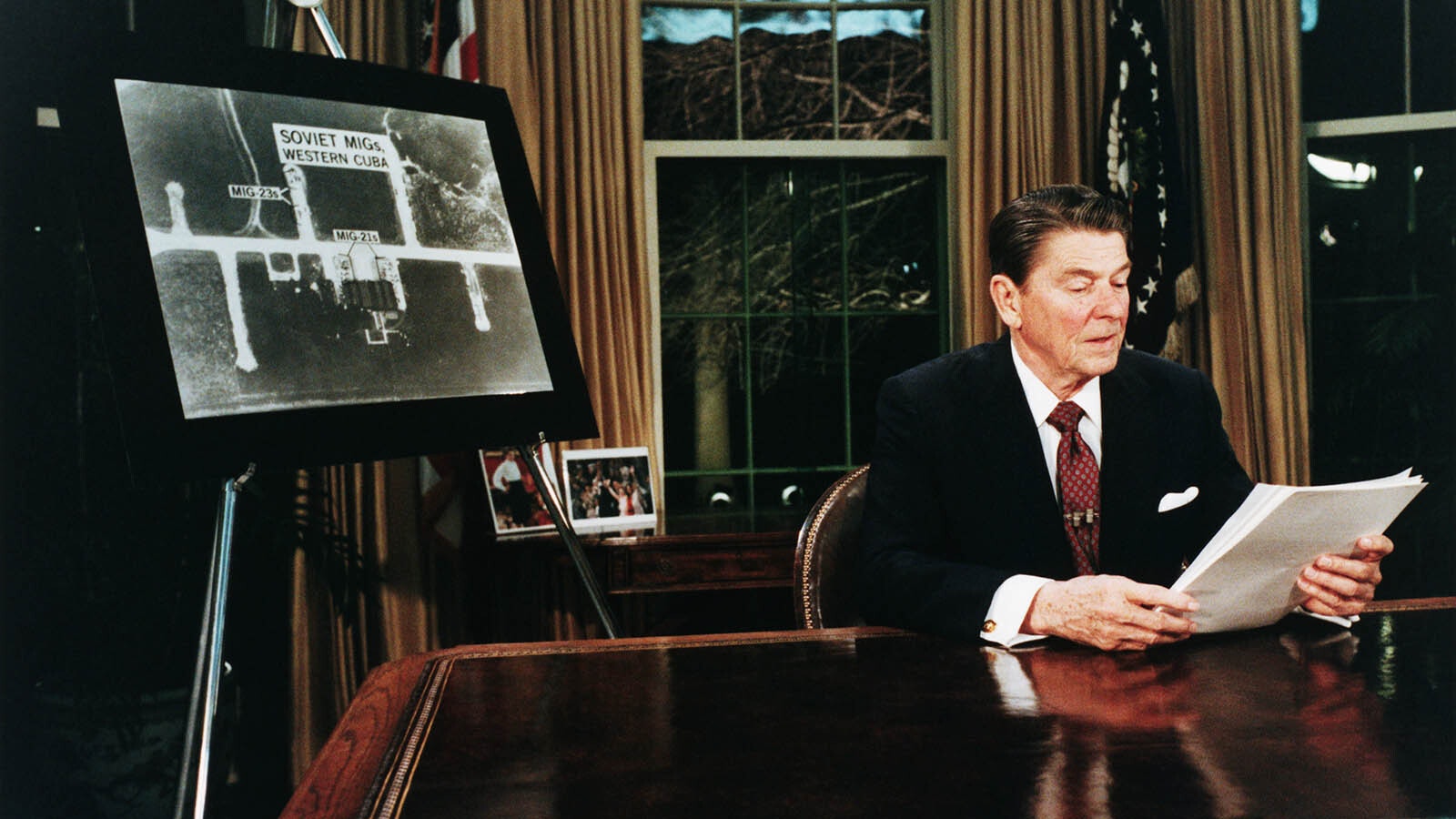
Everyone Deescalate
Reagan was campaigning for the presidency in 1980 and making bold statements about improving national defense and the failures of President Jimmy Carter’s peace efforts with the Union of Soviet Socialist Republics (USSR).
Three years later, March 23, 1983, Reagan publicly introduced the SDI program in a televised speech, calling it a tool for “free people (to) live secure in their knowledge that their security did not rest upon the threat of instant U.S. retaliation to deter a Soviet attack.”
But “behind closed doors,” Reagan also heeded politicians and bureaucrats pushing for arms control, the notion that nations can deescalate their arms development and adhere to weapon-limiting treaties, according to Wallop’s 1987 book “The Arms Control Delusion,” which he co-wrote with his staffer, international relations expert Angelo Codevilla.
Appointees who touted themselves as the D.C. establishment “called upon their raw bureaucratic power” and pressured Reagan to choose between their de-escalation strategies, and the host of unknown reactions the USSR could have to the development of robust American missile defense system, Wallop wrote.
Prodding The President
So Reagan vacillated between deescalating with the USSR (thereby limiting the United States’ defense production) and bolstering the Star Wars program.
Wallop was an outspoken critic of the president’s indecision. He coauthored a 1986 New York Times opinion piece with Rep. Jack Kemp, R-New York, blasting the president for “reportedly” offering to defer deployment of any American defenses against Soviet missiles for another five to seven years.
His book criticized the president for treating Star Wars like a research program or a bargaining chip, rather than an immediate response to the USSR’s daunting aspirations. He accused the president of “sugar-coating” his messaging to keep both the arms controllers in Washington, D.C., and the American people happy, while ignoring the realities of what war with the USSR would mean.
“The administration has consciously put off the time when Americans would have protective weapons, and … it has increased the chances of those weapons not working right,” Wallop wrote. He ridiculed the idea that mere treaties could influence Soviet behavior.
The Soviets contended between 1983 and 1985 that SDI was a threat to the USSR’s security, and that it was too expensive a program for the Soviets to keep pace in their own arms development.
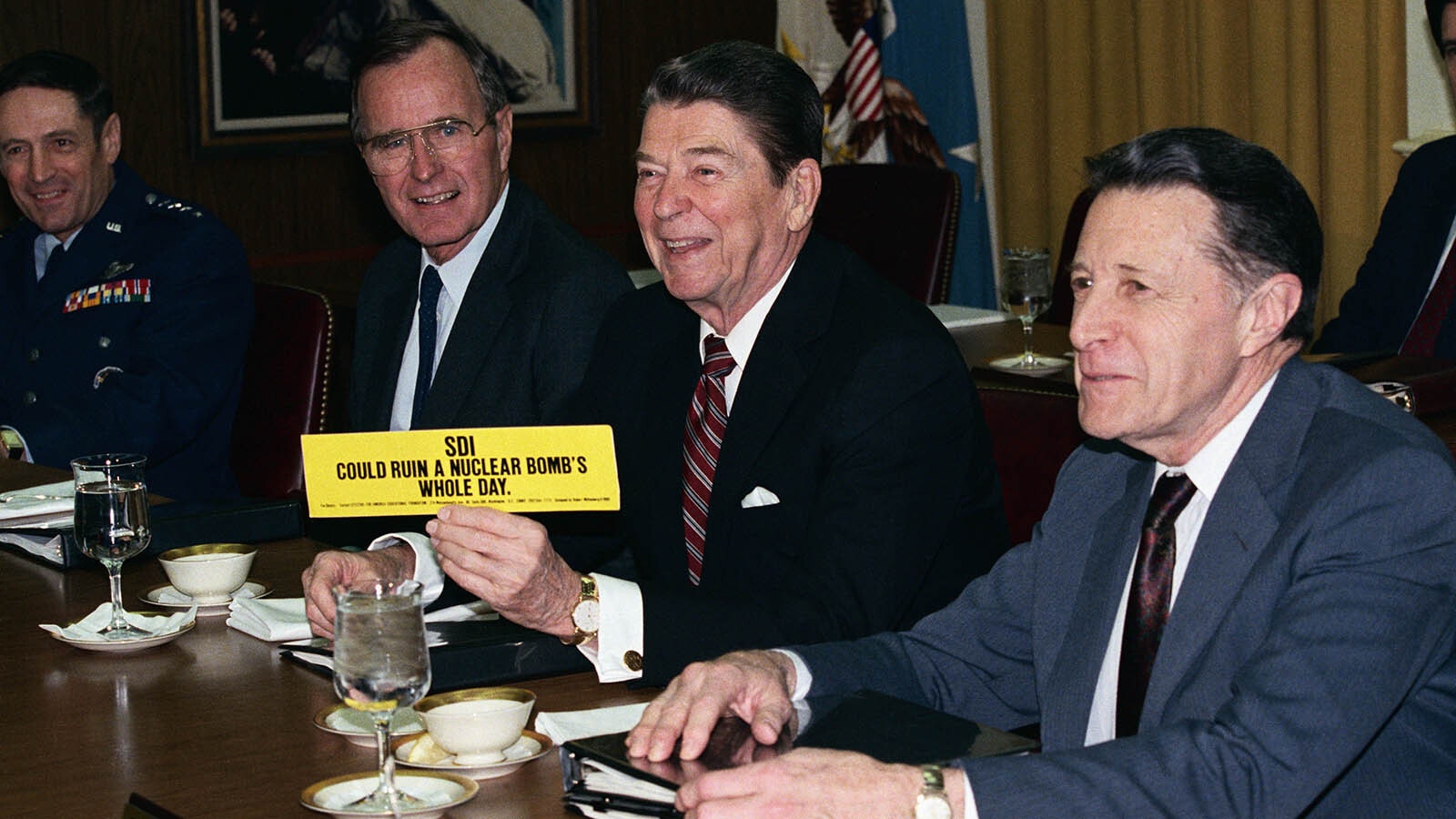
Cold War Ends
Wallop was so intent on keeping Star Wars in place that he hopped from the influential Senate Finance Committee in early 1989 to the Armed Services Committee, where he remained into 1992, Wallop’s former chief of staff, Rob Wallace, told Cowboy State Daily on Thursday.
It was an unheard-of leap from the powerful Senate committee to a lesser one. Wallace called it a reflection of how serious the senator was about American defense systems.
“That probably reflects the time he was most worried about the commitment of the administration to the (SDI) initiative,” said Wallace.
SDI did stretch U.S. finances, but it contributed to the end of the Cold War, according to the Besa Center.
The Soviet Union could not keep up its arms race with the U.S., and it ultimately collapsed in the end of 1991.
Biden Not Safe From Criticism Either
Henninger’s column teases the current president, contrasting Biden’s recent praise of America’s role in shooting down Iranian missiles against Biden’s open mockery of Star Wars.
Biden insisted in a 1986 speech that Star Wars was reckless and irresponsible, and threatened arms-control agreements buttressing American security.
Wallop’s book also criticizes then-Sen. Joe Biden, D-Delaware, as a meddlesome defender of USSR interests who coaxed politicians into looking the other way when the Soviets broke international de-escalation pacts. Biden dwelled on technical aspects of those pacts to keep the U.S. from holding the Soviets responsible for their arming-up, Wallop wrote.
“Senator Biden has strongly expressed the wish, no doubt sincere, that he not be taken as the Soviet Union’s defender,” wrote Wallop. “But how else can one characterize his invitation not to be alarmed by activities that are clearly threatening to Americans, but that might possibly be shielded by some technicality?”
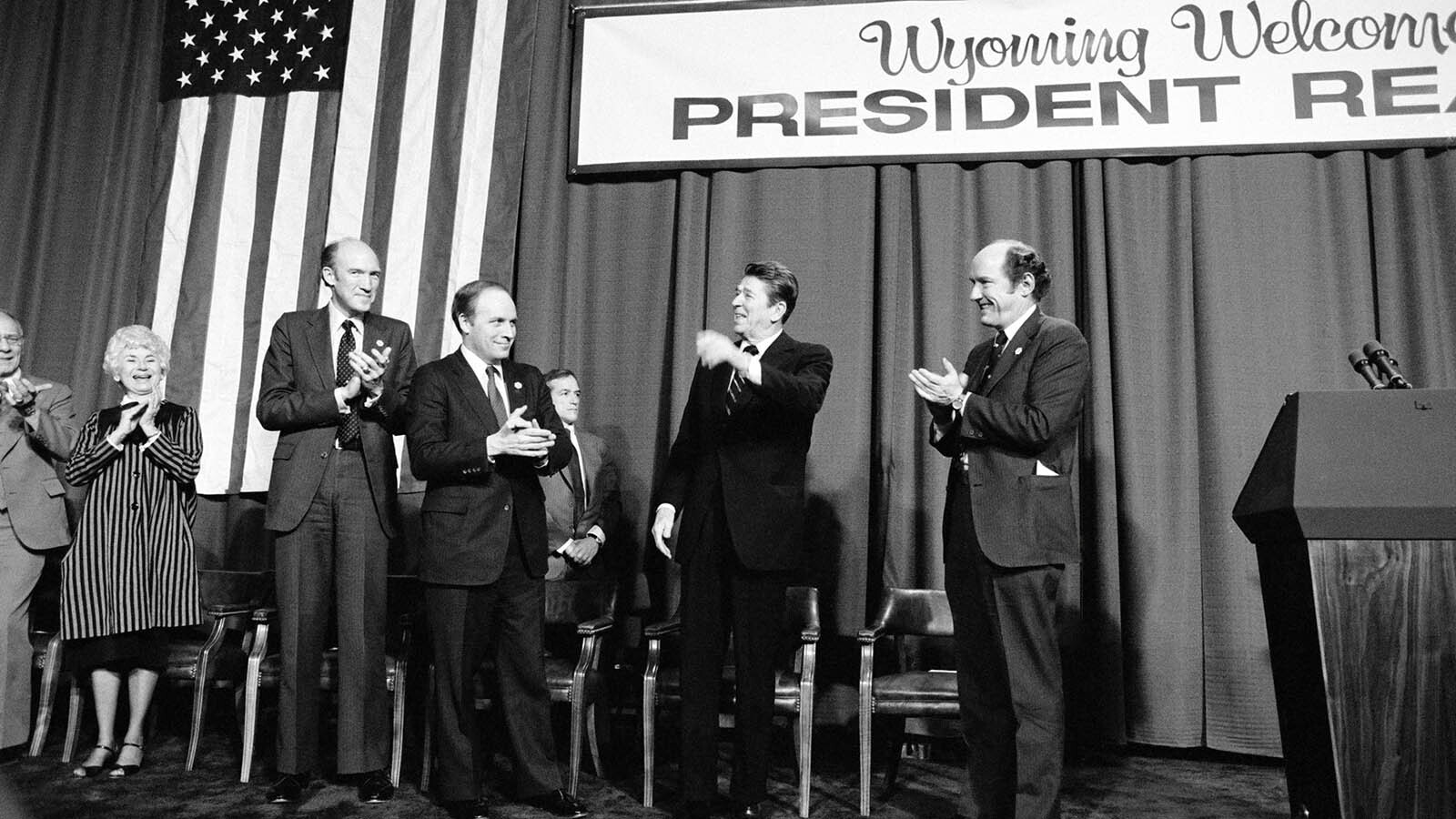
He Didn’t Buy MAD
Wallace remembers his former boss as “instrumental” in the SDI effort, as did another former Wallop chief of staff, retired Wyoming Supreme Court Justice Bill Hill.
Wallop pushed SDI so hard because he didn’t buy the strategy of mutual assured destruction (MAD), Wallace said.
Mutual assured destruction is the idea that if a nation launched nuclear missiles at another nation with nuclear capabilities, the stricken nation would counter-strike and inflict casualties and destruction so massive that no one would dare launch nuclear missiles in the first place.
“Malcolm thought, ‘That’s a really dumb idea,’” Wallace recalled.
The late senator’s book compares mutual assured destruction to some politicians’ technocratic hubris. Because a MAD fallout is almost incomprehensible, entertaining it logically made arms control even more tempting for some, he wrote.
The United States should not develop counterstrike weapons that could take out a quarter of the Soviet land mass, he wrote, adding that powerful defense systems were not only more effective at preserving humanity, but more ethical.
Wallop died at his home near Big Horn, Wyoming, in 2011 at age 78. The New York Times eulogized him as “a leading conservative light in Washington.”
Contact Clair McFarland at clair@cowboystatedaily.com

Clair McFarland can be reached at clair@cowboystatedaily.com.

